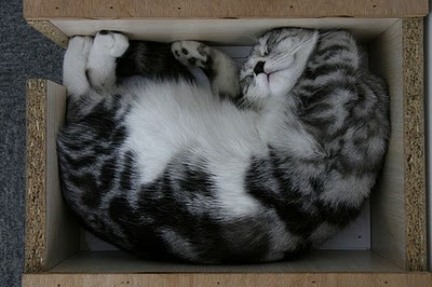 (Squished cat image taken from this website)
(Squished cat image taken from this website)
 (Squished cat image taken from this website)
(Squished cat image taken from this website)
| F U CN RD THS, you already appreciate the basics of data compression (and have a very clean mind). Data compression is a technology we all use every day, whether we think about it or not. It is what allows those huge media files to be stored in formats which will manageably fit on the USB drive on your keychain, or be efficiently sent over the internet. In its simplest form, compression relies on redundancy. Just as many vowels are superfluous, since the list of consonants "vwls" would already uniquely specify which word you have in mind, many of the bits in large computer files are unnecessary. Think of sending an image file, pixel by pixel. The image may contain many black regions – a whole lot of "zeroes" in the data file. Why type 1000 zeroes in a row (using up 1000 bytes of memory) when you could just say "now insert 1000 zeroes," an instruction that could be stated in just a few bytes? Patterns, repetition, all the same things we use to process an image mentally when we look at it, can be used to store the important information in a smaller file – after all, if a picture is only worth 1000 words, why should it take a million bytes to store it? |
For Further Reading:
"Squeeze me, tease me, please me!" by John Preskill
Bacon, Chuang, & Harrow, "Efficient Quantum Circuits for Schur and Clebsch-Gordan Transforms," PRL 97, 170502 (2006)
Plesch and Buzek, "Efficient compression of quantum information," PRA 81, 032317 (2010)
"Quantum Data are Compressed for the First Time" (Physics World)
Quantum bits get their first compression (Nature News)
Back to Aephraim's home page